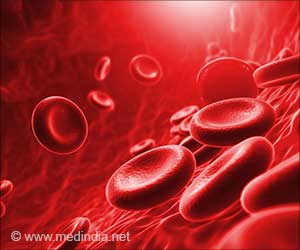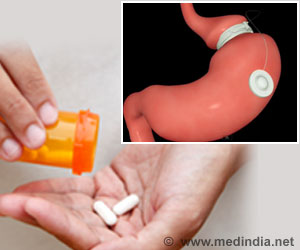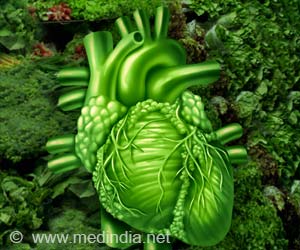- City of Hope initiates Phase 2a trial using human milk-based therapy for blood cancer patients
- PBCLN-010 + PBCLN-014 aims to restore microbiome in stem cell transplant patients
- Potential therapeutic advantages based on successful microbiota management in previous trials
Gut Microbiome Restoration in Blood Cancer Patients Undergoing Stem Cell Transplant
“Previous clinical trials of PBCLN-010 + PBCLN-014 have shown that it can safely and predictably control the gut microbiome in healthy adults,” said Greg McKenzie, Ph.D., VP of Product Innovation, Prolacta Bioscience. “Stem cell transplant patients endure extreme health challenges, and we believe this therapy may provide a positive impact with safe, effective microbiome restoration, which could help improve outcomes of these critically ill patients.” The randomized, open-label, multicenter Phase 2a trial will look at the feasibility, efficacy, and safety of combining PBCLN-010 (human milk oligosaccharides [HMOs]) with PBCLN-014 (Bifidobacterium longum subspecies infantis [B. infantis]) in adult patients with blood cancers undergoing stem cell transplantation. The experiment will assess how well B. infantis integrates into the gut microbiome and other changes in the microbiome over six months to the current standard of treatment. Changes in biomarkers that may predict better patient outcomes will also be monitored by researchers.Human Milk-Based Therapy Helps Establish a Healthy Microbiome
“Patients undergoing stem cell transplant often have disruptions in their gut microbiome, including an increase in potentially disease-causing pathogens and an overall loss of diversity. This leaves patients prone to opportunistic infections and graft-versus-host disease, which can result in multi-organ attack and death. This Phase 2a study will measure how well the human milk-based therapy helps establish a healthy microbiome in patients with blood cancers as it does naturally in the newborn gut,” said Karamjeet Sandhu, M.D., assistant professor, Department of Hematology & Hematopoietic Cell Transplantation at City of Hope, one of the largest cancer research and treatment organizations in the United States.This Phase 2a experiment is part of a larger study on the therapeutic advantages of human milk-based microbiome treatment. The results of two prior clinical trials utilizing this strategy were published in the journal Cell Host & Microbe (May 2022 and September 2023), revealing that PBCLN-010 + PBCLN-014 can manage the gut microbiota in healthy adults safely and predictably (1✔ ✔Trusted Source
Precision modulation of dysbiotic adult microbiomes with a human-milk-derived synbiotic reshapes gut microbial composition and metabolites
Go to source) (2✔ ✔Trusted Source
Dosing a synbiotic of human milk oligosaccharides and B. infantis leads to reversible engraftment in healthy adult microbiomes without antibiotics
Go to source). This is the first time that such a large change has been induced into a subject's microbiome, maintained in that subject, and subsequently reversed in healthy adult subjects, demonstrating a high level of control.
The experiment will include prominent stem cell transplant centers from across the country, in addition to the City of Hope in Los Angeles. The company will apply for and expect to receive orphan medication classification based on the severity of the condition and the magnitude of the patient group.
Human Milk Oligosaccharides (HMOs) and Bacillus Infantis
Human breast milk includes significant levels of a group of over 200 structurally different sugars known as human milk oligosaccharides (HMOs) (3✔ ✔Trusted SourceHuman Milk Oligosaccharides and the Preterm Infant: A Journey in Sickness and in Health
Go to source). Unlike the nutritious components of breast milk, HMOs are not digested by the newborn as an energy source. Instead, HMOs direct the growth of suitable bacteria in the gut, which aids in the development of the infant's immune system (4✔ ✔Trusted Source
Human Milk Oligosaccharides: Health Benefits, Potential Applications in Infant Formulas, and Pharmacology
Go to source). In this approach, HMOs help guard against infections by suppressing inflammation and improving gut barrier integrity (5✔ ✔Trusted Source
Bifidobacterium longum Subspecies infantis (B. infantis) in Pediatric Nutrition: Current State of Knowledge
Go to source).
B. infantis, a kind of "good" bacteria in the infant's gut known to impact these protective responses, is unusual in its capacity to utilize the HMOs in human breast milk. B. infantis levels in adults decrease once infants are weaned from human milk (6✔ ✔Trusted Source
Gut Bifidobacteria Populations in Human Health and Aging
Go to source).
Prolacta Bioscience, a privately held worldwide life sciences firm dedicated to Advancing the Science of Human Milk, provided research, development, and early clinical trial support for PBCLN-010 and PBCLN-014. The company is currently looking for strategic partners to help it continue development and pursue therapeutic market prospects.
References:
- Precision modulation of dysbiotic adult microbiomes with a human-milk-derived synbiotic reshapes gut microbial composition and metabolites - (https://www.cell.com/cell-host-microbe/fulltext/S1931-3128(23)00329-3?)
- Dosing a synbiotic of human milk oligosaccharides and B. infantis leads to reversible engraftment in healthy adult microbiomes without antibiotics - (https://pubmed.ncbi.nlm.nih.gov/35504279/)
- Human Milk Oligosaccharides and the Preterm Infant: A Journey in Sickness and in Health - (https://pubmed.ncbi.nlm.nih.gov/28159206/)
- Human Milk Oligosaccharides: Health Benefits, Potential Applications in Infant Formulas, and Pharmacology - (https://www.ncbi.nlm.nih.gov/pmc/articles/PMC7019891/)
- Bifidobacterium longum Subspecies infantis (B. infantis) in Pediatric Nutrition: Current State of Knowledge - (https://www.ncbi.nlm.nih.gov/pmc/articles/PMC7352178/)
- Gut Bifidobacteria Populations in Human Health and Aging - (https://www.ncbi.nlm.nih.gov/pmc/articles/PMC4990546/)
Source-Medindia
















